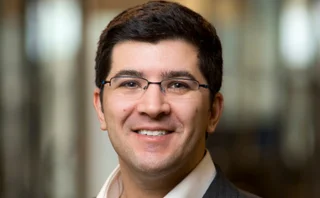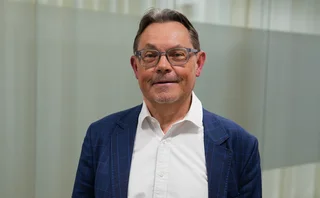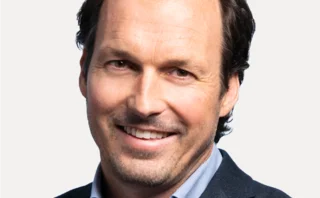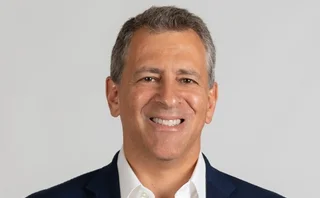
Commodity and energy finance house of the year: Societe Generale
Energy Risk Awards 2022: Bank leads charge into challenging new renewables markets

Compared with what was to come, the first half of 2021 was a relatively benign period in the commodity and energy finance markets. “There was pent-up demand coming out of 2020, commodity prices were firming up, we did not yet know that inflation was going to be a problem … there was easy access to liquidity,” says Federico Turegano, New York-based global head of natural resources, energy and infrastructure at Societe Generale, winner of Energy Risk’s Commodity finance house of the year award.
Since then, Russia’s invasion of Ukraine, a crisis in energy markets and growing concerns about inflation have changed sentiment. “This year we’ve seen a more challenging environment for risk and decision-making,” Turegano says, although he notes that “the pipeline of business remains fairly strong”.
It’s not surprising that there is plenty to keep energy bankers busy. The unexpected post-Covid demand, the need to replace Russian energy exports and the continuing imperative to decarbonise global energy generation are all creating an enormous need for new extraction, supply and generation infrastructure across the energy complex. However, crucial to the France-based bank’s success has been a willingness to branch out into new markets, says Olivier Musset, its Paris-based global head of energy.
“Last year, we were seeing a lot of liquidity. To be a leader, we had to go beyond the middle of the fairway, and into the rough,” he says. “It’s quite easy to find a bank to finance onshore renewables in western Europe; we want to go into areas which are less crowded.”
“We’ve been a leader in renewables in Europe for many years, and we’re happy to continue to be there and compete for that,” adds Turegano. “But the market is – thankfully – becoming commoditised. By helping Indonesia, Taiwan or Vietnam build out renewables, not only do we bring value but, in some cases, we’re truly opening the market.”

One such deal was the Cirata Floating Solar Photovoltaic (PV) project, a $114 million project financing, lead-arranged by Societe Generale for a joint venture between a subsidiary of PLN, Indonesia’s national utility, and Masdar Clean Energy, a developer and operator based in the United Arab Emirates.
The funds will be used to build the first floating PV project in Indonesia, constructing a large-scale, 145-megawatt (MW) system in a country that has historically relied on coal, gas and hydro for power generation, and which has limited land available for renewable energy, notes Musset.
As well as its novelty for the country, the size “is quite remarkable”, he says, adding that the investors needed to get comfortable with the technical resilience of an asset with a working life of 25 to 30 years. The deal is also uncovered, meaning the arranging banks are taking a long-term risk on Indonesia. “We have to trust Indonesia’s regulatory and legal framework to be reliable over the terms of the power purchase agreement.”
Societe Generale helped to break similar ground in Dubai, arranging a $900 million financing for a landmark waste-to-energy project. Once operational later this decade, the 200 MW Warsan facility will process 1.9 million tonnes of municipal solid waste each year, diverting 45% of Dubai’s waste from being sent to landfills.
“You wouldn’t expect to find a French bank financing a waste-to-energy project in Dubai,” says Musset. “But we want to go beyond our comfort zone, and this is an illustration of that.” The main challenge in such a financing was gaining comfort over the reliability of the waste stream. “As well as construction risk, you also need to understand the commissioning risk. Given its size, you not only need a reliable facility, but you also need perfect logistics to ensure you can collect all the waste going into it.”
The bank also sees opportunities for new business in US university public-private partnerships, with its first financial advisory for a long-term energy management partnership. Societe Generale advised on a $785 million, 50-year agreement that will see Georgetown Energy Partners, an entity owned by utility Engie and fund manager Axium Infrastructure, operate, maintain and modernise Georgetown University’s utility system.
“American universities, which have helped drive the debate around ESG (environment, social, governance) and climate change, have, to some degree, been a little bit slow in adjusting their own carbon footprints,” says Turegano. This financing will enable a modernisation that will reduce energy use intensity by 35% and put the university on course for carbon neutrality by 2030.
Societe Generale has also been active in supporting the supply of the commodities that will enable the low-carbon transition. Last year, it helped refinance the Pilgangoora Lithium-Tantalum project, a mine in Western Australia extracting a key input for batteries for electric vehicles and energy storage.
“This is consistent with the shift that our metals and mining team made about seven years ago to refocus their business on the metals that are central to the energy transition,” says Turegano. “We’re doing some of the newer things, such as advising on battery factories and converting steel smelters to hydrogen, but we also recognise that some of the legacy business – of digging a hole in the ground and extracting metal or minerals – is still relevant and here to stay.”
Only users who have a paid subscription or are part of a corporate subscription are able to print or copy content.
To access these options, along with all other subscription benefits, please contact info@risk.net or view our subscription options here: http://subscriptions.risk.net/subscribe
You are currently unable to print this content. Please contact info@risk.net to find out more.
You are currently unable to copy this content. Please contact info@risk.net to find out more.
Copyright Infopro Digital Limited. All rights reserved.
As outlined in our terms and conditions, https://www.infopro-digital.com/terms-and-conditions/subscriptions/ (point 2.4), printing is limited to a single copy.
If you would like to purchase additional rights please email info@risk.net
Copyright Infopro Digital Limited. All rights reserved.
You may share this content using our article tools. As outlined in our terms and conditions, https://www.infopro-digital.com/terms-and-conditions/subscriptions/ (clause 2.4), an Authorised User may only make one copy of the materials for their own personal use. You must also comply with the restrictions in clause 2.5.
If you would like to purchase additional rights please email info@risk.net
More on Commodities
Energy Risk Asia Awards 2025: The winners
Winning firms showcase the value of prudent risk management amid challenging market conditions
Data and analytics firm of the year: LSEG Data & Analytics
Energy Risk Awards 2025: Firm’s vast datasets and unique analytics deliver actionable insights into energy transition trends
OTC trading platform of the year: AEGIS Markets
Energy Risk Awards 2025: Hedging platform enhances offering to support traders and dealers in unpredictable times
Electricity house of the year: Natixis CIB
Energy Risk Awards 2025: Bank launches raft of innovative deals across entire electricity supply chain
Voluntary carbon markets house of the year: SCB Environmental Markets
Energy Risk Awards 2025: Environmental specialist amplifies its commitment to the VCM
Sustainable fuels house of the year: Anew Climate
Energy Risk awards 2025: Environmental firm guides clients through regulatory flux
Weather house of the year: Parameter Climate
Energy Risk Awards 2025: Advisory firm takes unique approach to scale weather derivatives markets
Hedging advisory firm of the year: AEGIS Hedging
Energy Risk Awards 2025: Advisory firm’s advanced tech offers clients enhanced clarity in volatile times







